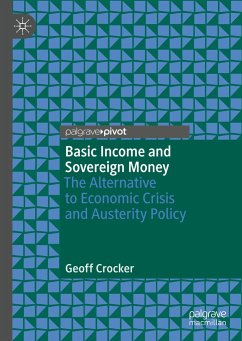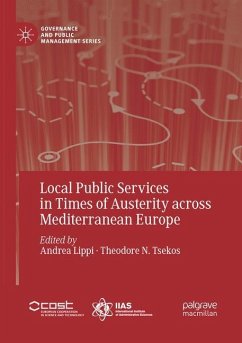
Stimulus packages vs. Austerity measures
A regression analysis investigating the effects of the relationship between public debt and economic growth
Versandkostenfrei!
Versandfertig in 6-10 Tagen
27,99 €
inkl. MwSt.

PAYBACK Punkte
14 °P sammeln!
The current sovereign debt levels resulting from the global financial crisis of 2007 - 2008, with its epicenter in the Eurozone, have forcefully revived the academic and policy debate on fiscal sustainability. Particularly, the extent to which large public debt levels are likely to have an adverse effect on economic growth strengthens an inevitable scientific dispute among supporters of Keynesian economics and neoliberalism. Despite the political and economic importance, the empirical evidence that large debt ratios affect potential growth negatively still lacks scientific acceptance. Hence, t...
The current sovereign debt levels resulting from the global financial crisis of 2007 - 2008, with its epicenter in the Eurozone, have forcefully revived the academic and policy debate on fiscal sustainability. Particularly, the extent to which large public debt levels are likely to have an adverse effect on economic growth strengthens an inevitable scientific dispute among supporters of Keynesian economics and neoliberalism. Despite the political and economic importance, the empirical evidence that large debt ratios affect potential growth negatively still lacks scientific acceptance. Hence, this paper is aimed to provide further insights on the discussed relationship by elaborating the scientific basis of public debt and economic growth under closer consideration of the Eurozone. Finally, different regression models are applied to investigate the precise relationship between the real GDP growth rate and the Public-Debt-to-GDP ratio.












